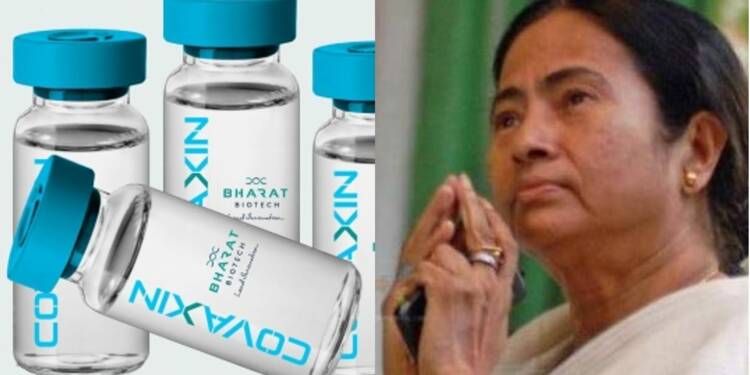Almost two weeks ago, Mamata Banerjee wrote a letter to the Prime Minister and requested to speedily import vaccines. “Production of vaccines in the country is extremely inadequate… Globally, there are many manufacturers now… it is possible to identify the reputed and authentic manufacturers and speedily import vaccines from them from different parts of the world,” she said.
In the same breath, she also said that she is ready to provide any kind of support for the manufacturing of vaccines in West Bengal. “We, in West Bengal, are ready to provide land and support for any manufacturing/franchisee operation for authentic vaccine manufacturing,” she added in the letter.
However, knowing that West Bengal is as much hell for industrialists under Mamata Banerjee as it was under Communists, the Bharat Biotech obviously did not make the mistake of manufacturing vaccines in the state.
Instead, the company is all set to start vaccine manufacturing at the Chiron Behring Vaccines unit in Ankleshwar, Gujarat, thereby adding 200 million doses of output per annum. Bharat Biotech picking up Gujarat over West Bengal once again shows why the Gujarat model of governance is better.
A political career that has been entirely built on chasing out a private company from the state and refusing to let it set up a factory to facilitate the economic movement — West Bengal Chief Minister Mamata Banerjee’s life has come full circle as she invites vaccine manufacturers to drop anchor in the eastern state.
It was Singur where the Left government forcibly tried to build the Tata Nano plant, only for Mamata Banerjee to fully exploit the issue and throw away the hegemonic communist regime after 34-years and storm into power. However, farmers of Singur have been regretting their support for Mamata’s political movement in 2008, ever since.
It has been Mamata’s socialist mindset that has trampled the growth story of Bengal over the years. Despite having clocked two consecutive terms and now preparing for another five years at the office, Mamata has failed to push the growth of Bengal.
Union Home Minister Amit Shah had raised the issue during the election trail and questioned Mamata for letting Bengal slip down the ladder.
“At the time of independence, Bengal’s share in India’s industrial production stood at 30 per cent. Today, it has come down to a mere 3.5 per cent. I want to ask Mamata Didi and the communists: who is responsible for this?” said Amit Shah in a press conference on December 20 last year whilst adding, “In 1960, Bengal’s per capita income was 105 per cent of Maharashtra. Now, it’s not even half.”
So far, the state has trimmed the capital expenditure increase by spending on ‘freebies’ like farm loan waiver and unemployment benefits. This has resulted in a ‘vicious cycle’ and is equally responsible for the slowdown in economic growth and unemployment. Just as it is on the central government, it is also an obligation on the state to ensure job growth and rapid economic growth by increasing capital expenditure. However, the populist policies of Mamata Banerjee of expenditure of billions of dollars to appease the Muslim vote bank leave no room for capital expenditure to provide basic infrastructure to industries.


























A great decision by Bharat Biotech. Also there are so many pharma companies already operating for past 30 plus years in Gujarat so it’s obvious choice to work together with them in the same state which will help in reducing logistical expenses if Bharat Biotech using any of the medical materials from the other pharma companies in Gujarat.
They all remember Nandigram. No company is likely to repeat the mistake the Tatas made
Bharat Biotech is smart in ignoring Mamata’s calls to make to make vaccines in West Bengal.
Bengal has a militant work force and
Mamata showed her true colours when Tata Motors was left with no option but to leave.
“We had to take the decision that we cannot operate in the hostile situation and had to move out the car factory to another state,” is what Ratan Tata, now Chairman Emeritus of Tata Sons said in 2014.
Thirteen years after a farmers’ stir put Singur on the nation’s political map, the land owners are unable to derive any income from their land, as the TMC government failed to keep its promise of turning their arid plots cultivable.
Having got a whiff of local sentiments, during campaigns for the recent assembly elections, both the TMC and the BJP promised industrialisation in Singur.